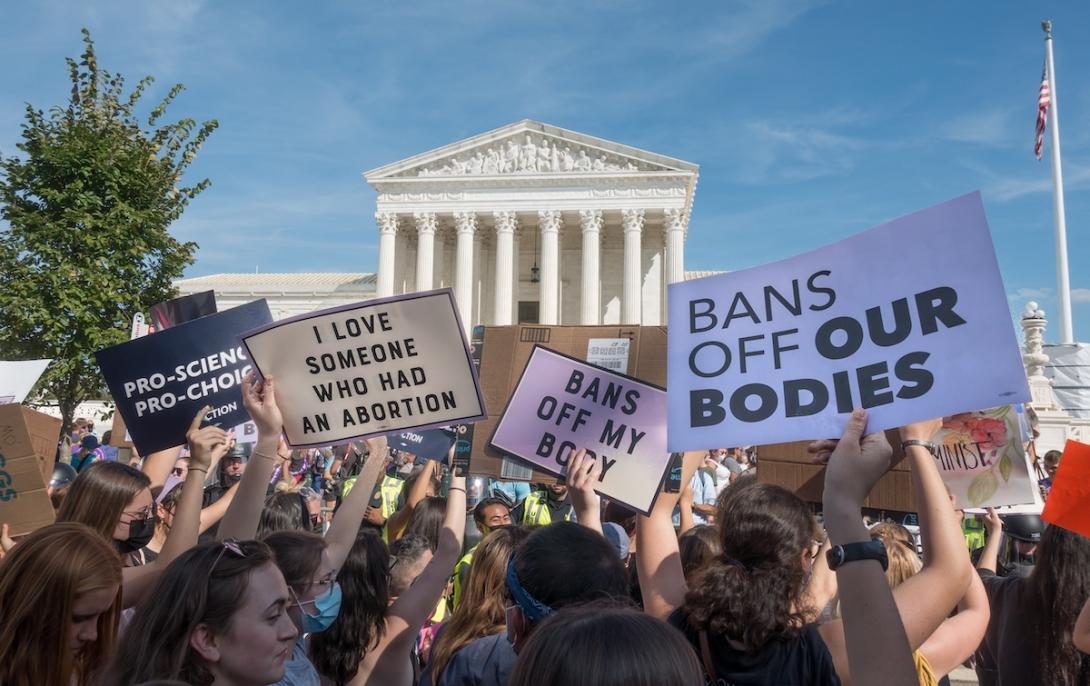
A federal judge in Washington issued an order Thursday clarifying that he intends to preserve full access to a widely used abortion drug in Oregon, Washington and 16 other states, regardless of conflicting rulings from a judge in Texas and the 5th Circuit Court of Appeals.
The order from Judge Thomas O. Rice, of the U.S. District Court of Eastern Washington, comes after a federal court in Texas last week blocked the Food and Drug Administration’s approval of mifepristone, one of two the medications prescribed together in the most commonly used method of abortion.
That decision was set to take effect Saturday. However, the FDA and drug maker Danco Laboratories sought emergency relief from a federal appeals court in New Orleans, looking to block the Texas ruling from taking effect while the government pursues an appeal.
A federal appeals court in New Orleans narrowed that ruling on Wednesday. The 5th U.S. Circuit Court of Appeals in New Orleans ruled that the abortion pill could still be used while the government’s appeal proceeds, but with some caveats, including that it could no longer be obtained by mail and can only be used for pregnancies up to seven weeks gestation.
The U.S. Department of Justice said it disagrees with the 5th Circuit’s decision and will ask the U.S. Supreme Court to intervene immediately on the question of whether a full stay should be granted pending the appeal.
The dueling federal rulings stem from two separate lawsuits. In a suit filed by a conservative group called Alliance Defending Freedom, Judge Matthew J. Kacsmaryk of the Northern District of Texas ruled that the FDA’s approval of mifepristone in 2000 wasn’t valid, essentially taking it off the market. In the other suit filed in February, attorneys general from Oregon and Washington alleged the FDA had singled out mifepristone for excessive regulation. Judge Rice has not yet heard arguments on the merits of that case. However, just hours after Kacsmaryk’s ruling, Rice granted a preliminary injunction to preserve access to mifepristone in the 18 states signed onto the suit.
Rice’s ruling Thursday confirms that initial injunction.
The ruling Thursday is the latest twist in a week of rapid developments involving the two starkly opposed cases that have thrown into question the fate of a medication used by more than 5 million women since its approval in 2000. Both cases remain far from resolved. The 5th Circuit Court of Appeals has promised to hear oral arguments in the appeal of the Texas case as quickly as possible, and oral arguments haven’t yet happened in the Washington case. Ultimately, appeals could bring the issue to the Supreme Court for resolution.
In the meantime, Thursday’s decision in Eastern Washington was cheered by Oregon Attorney General Ellen Rosenblum.
“Our coalition will continue to fight for and protect access to abortion medications, which have been used safely for 23 years,” Rosenblum said in a statement.
According to Rosenblum, while Rice’s injunction is in effect, patients in Oregon will not experience any changes in their access to mifepristone. Doctors will still be able to prescribe it via telemedicine appointments, and certified pharmacies can dispense it to patients in person or by mail. The medication will be authorized for pregnancies up to 10 weeks gestation.
More than half of abortions in the United States are medication abortions that typically use both mifepristone and misoprostol. More than 90% of all abortions in the United States take place in the first 12 weeks of pregnancy.
Mifepristone is not medically necessary to end a pregnancy with medication. Most early pregnancies can be ended with a higher dose of misoprostol alone, but it is less effective at ending a pregnancy without the need for surgery when used alone.
Access to abortion medication and other forms of abortion care became severely limited in some states in the wake of the U.S. Supreme Court decision in Dobbs v. Jackson, which handed the responsibility for creating and enforcing abortion access laws to the states.
Fourteen states, including Idaho, are considered very or most restrictive by the Guttmacher Institute, a research and policy organization focused on expanding reproductive rights. Twelve more states are considered restrictive.
Oregon is considered the state most protective of abortion rights by Guttmacher.
Eventually, the debate over mifepristone access may end up in the hands of the Supreme Court.
In anticipation of the ruling, Washington Gov. Jay Inslee earlier this month announced that he ordered the state’s Department of Corrections to use its pharmacy license to buy 30,000 doses of mifepristone for patients in the state — about a three-year supply.